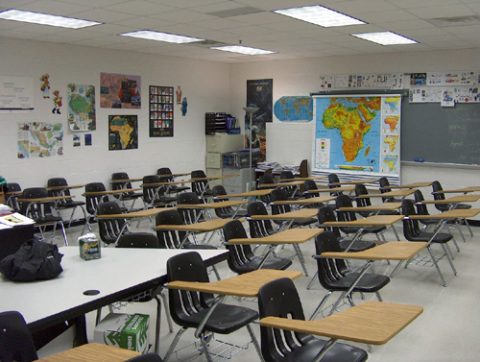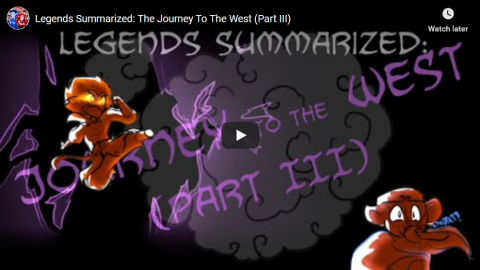Paul Sellers
Published 17 May 2014In this video, Paul Sellers takes you through the steps necessary to prepare a wooden jack plane for use.
To find out more about Paul Sellers and the projects he is involved with visit http://paulsellers.com
May 26, 2020
Preparing a Wooden Jack Plane | Paul Sellers
“No more pencils, no more books…”
In the latest edition of the Libertarian Enterprise, Sean Gabb considers the demands from the British government to quickly re-open the schools over the concerns of the educational unions and administrations:
The latest turn in an increasingly dull coverage of the Coronavirus panic is a proposed reopening of the schools. The Government wants them open as soon as possible for at least some of their students. The teaching unions are bleating that no one should go back until their members can be sure of not catching anything. The headmasters are worried about compliance with the social distancing rules. As a conservative of sorts, I think I am supposed to side with the Government and the pro-Conservative journalists — denouncing the teachers as a pack of idlers where not cowards, and insisting that those factories of essential skills must be set back in full production before the summer holidays. Of course, my settled view as a libertarian is that the teaching unions deserve all the support I have never so far given them. The schools must remain closed until no one is in any danger of so much as an attack of hay fever. The schools have been largely closed since the end of March. The longer they stay largely closed, the better. Best of all if they never reopen — or never reopen as they have been since attendance was made compulsory at the end of the nineteenth century.
I quote John Stuart Mill on compulsory schooling:
A general State education is a mere contrivance for moulding people to be exactly like one another: and as the mould in which it casts them is that which pleases the predominant power in the government, whether this be a monarch, a priesthood, an aristocracy, or the majority of the existing generation; in proportion as it is efficient and successful, it establishes a despotism over the mind, leading by natural tendency to one over the body.
(On Liberty, 1859, Chapter 5, “Applications.”)This has always been the case in some degree. The spread of state schooling in England after 1870, and particularly after it was made compulsory in 1880, and then extended in 1902, is probably inseparable from the nationalist hysteria that drove our participation in the Great War. It also may explain the perverse belief, general until the 1970s, in the unique goodness and honesty of our ruling class. This being said, reasonable patriotism is to be encouraged; and, compared with others, our ruling class was not until recently so bad. A further point is that compulsory state schooling used to be reasonably effective at giving the mass of people a basic education. By 1960, most people were literate and numerate. They could spell and write grammatical prose. They had some exposure to the English classics, and the means of exploring these to greater depth if they wished. They had some understanding of history and the sciences. You can tell much about the quality of a people by examining what is read and watched. Looking at the popular arts in England during much of the twentieth century explains why this passage in On Liberty was less often discussed than his arguments for freedom of speech. Mill was right in the abstract. He could be shown to be right in certain particulars. But the evils of compulsory state schooling were mostly potential.
All this, however, is in the past. Since about 1980, schooling of all kinds has been made into a concerted means of indoctrination. The cultural leftists have captured both the classrooms and the curriculum. I will not elaborate on this claim. Some will argue over terminology, some over the merits of the capture, but hardly anyone denies the broad fact. One of the main functions of modern schooling is to bring about and to protect a radical departure from the old intellectual culture of this country.
Much of this departure has been achieved by preaching in the classroom. But it is supplemented by a growing bureaucracy of surveillance. The teachers themselves are watched, and they can be punished for dissenting from the established discourse. There is, for example, the Government’s Prevent strategy, which applies to the whole state machinery. Its purpose is to identify and root out anyone defined as a “political extremist.” Anyone identified as such is effectively banned from working with children and young people, and probably in the state sector as a whole.
Legends Summarized: The Journey To The West (Part III)
Overly Sarcastic Productions
Published 13 Apr 2016At last! The saga continues, as our troupe of compadres grows from three to five and the story can REALLY get started!
In case you were wondering, this ISN’T the only origin of the five-man-band archetype, although it certainly accounts for a lot of the associated tropes. The Mahabharata is another classic example, with the five Pandava brothers filling out the classic roles very well.
HEADS UP! We have a twitter now! Find us at https://twitter.com/OSPyoutube for all your dorky book-humor needs!
QotD: Our sister Dominions on the other side of the world
I used to write from time to time about how strange it is that we Canadians don’t pay more attention to politics in Australia, our nearest sibling as a historic Dominion of the British crown. But this has changed a bit in the last few years. Editors have learned that Australia’s rough-and-tumble party politics and leadership “spills” make terrific entertainment. Canadian election reformers praying for proportional representation have given Oz more attention as a teaching example. Australia gets more column-inches, or at least koala GIFs, than it once did.
But, of course, the real joke here is on New Zealand. It’s the Dominion too easily forgotten for someone like me to remember to point out how forgotten it is.
What’s interesting about this is that, over the past 40 years or so, New Zealand has probably exercised a more significant political influence on Canada than Australia ever did. New Zealand’s 1980s neoliberal revolution, led by Finance Minister Roger Douglas, helped teach politicians everywhere (and especially in Alberta) tactics for deregulating, privatizing, lowering marginal tax rates, and generally blowing the dust off of planned economies.
Colby Cosh, “An ounce of Canadianity for a less-radical junior Dominion”, National Post, 2018-02-27.






